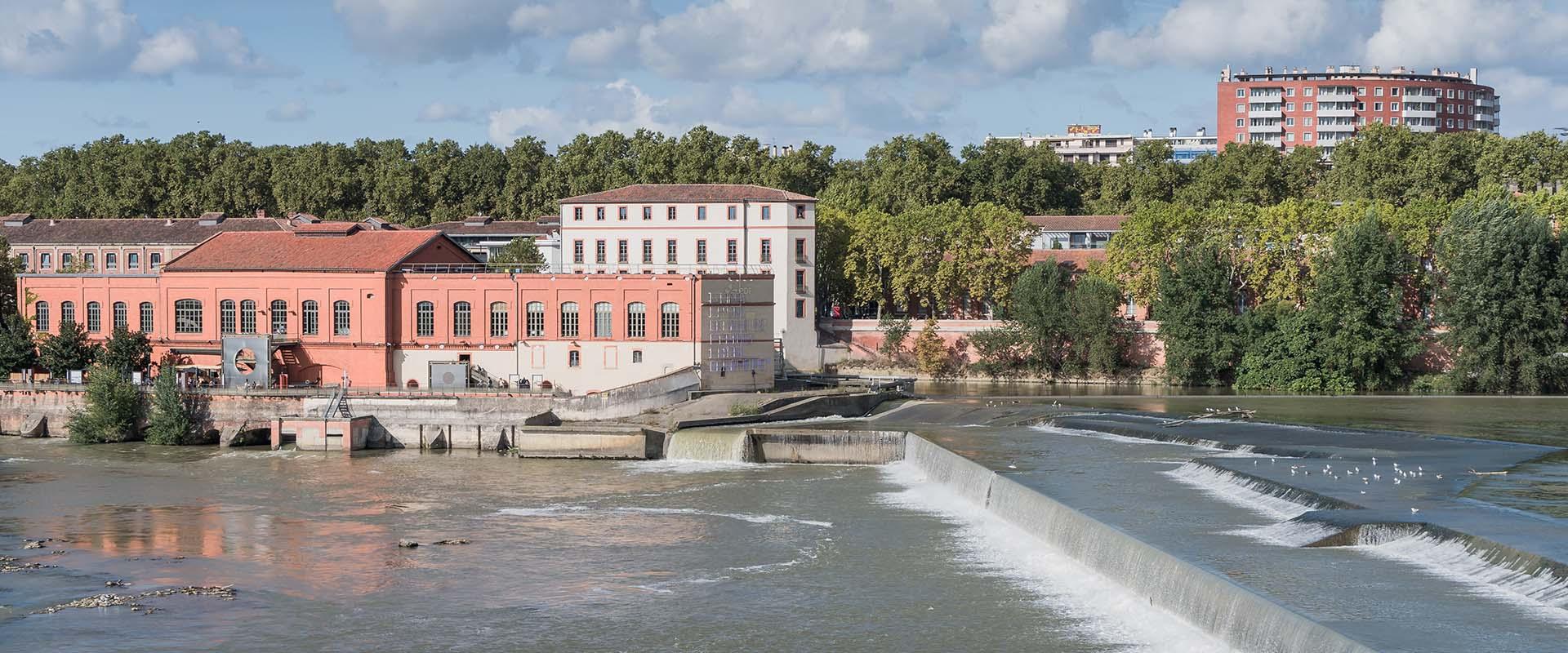
Renewable energies
The Energy Master Plan (SDE): this is the roadmap for understanding energy production and consumption and planning for their evolution at regional level up to 2030 and 2050.
-20%energy consumption
Target
32%of renewables within the energy supply mix
Target
-40%greenhouse gas emissions
Target
Priority actions:
- Renewing the energy supply for housing
- New-build housing for the residential sector with improved energy performance and the standardised implementation of "Energy Producing Buildings" (photovoltaic panels & energy efficient decarbonised heating equipment)
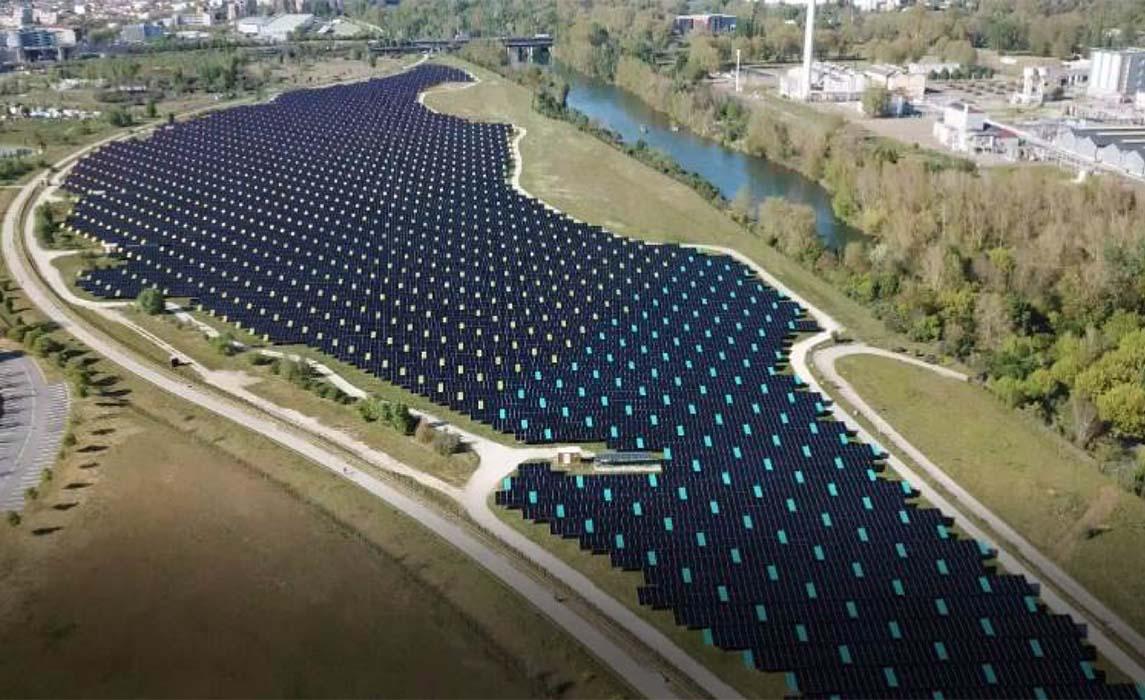
Solar energy
The development of photovoltaic solar energy and the existing installations in the metropolitan area:
- Inauguration at the end of 2021 of the largest urban photovoltaic plant in France: 35,000 panels (15 MW on 25 ha) on the Oncopole site.
- This produces the annual equivalent of the electricity consumption of 4,100 inhabitants
- Main projects for the metropolitan area :
- The Plaine de l’Oncopole > 15 MWc
- The MEETT Exhibition Centre > 5 MWc
- The Market of National Interest > 1,7 MWc
- The Castelginest wastewater treatment plant > 0,3 MWc
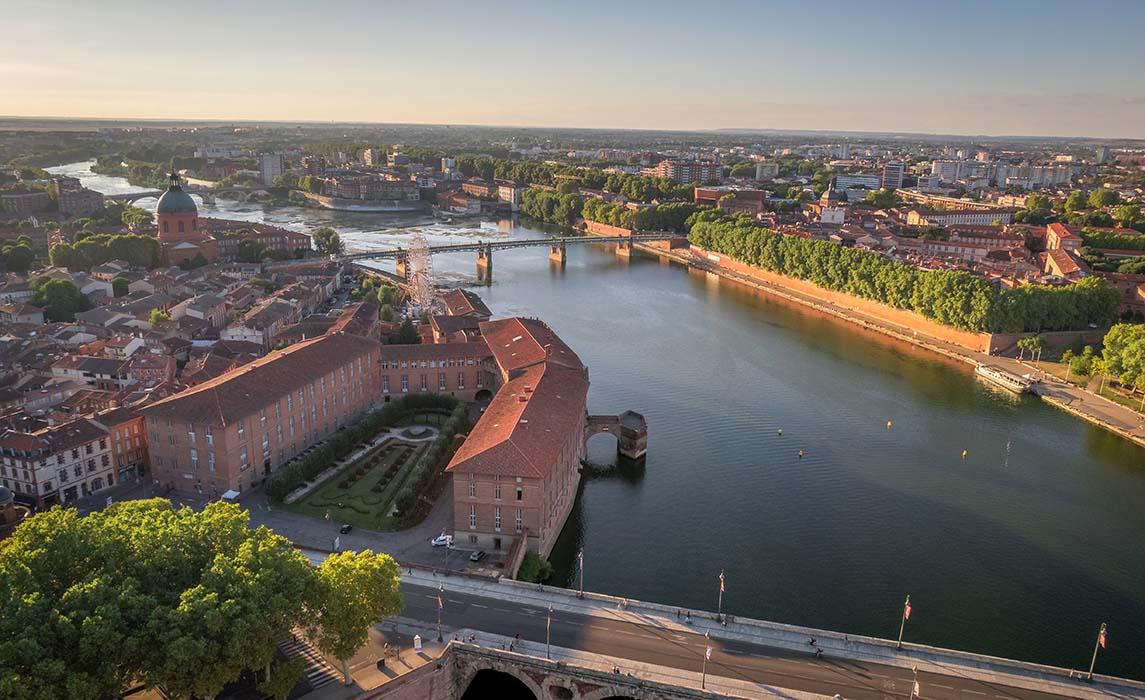
Toulouse Metropole’s heating networks
- This involves heat produced by the combustion of non-recyclable waste that is fed back into the heating network.
- Toulouse Metropole operates 3 heating networks under public service contracts.
- On average, more than 90% of them are powered by renewable or recovered energy (EnRR).
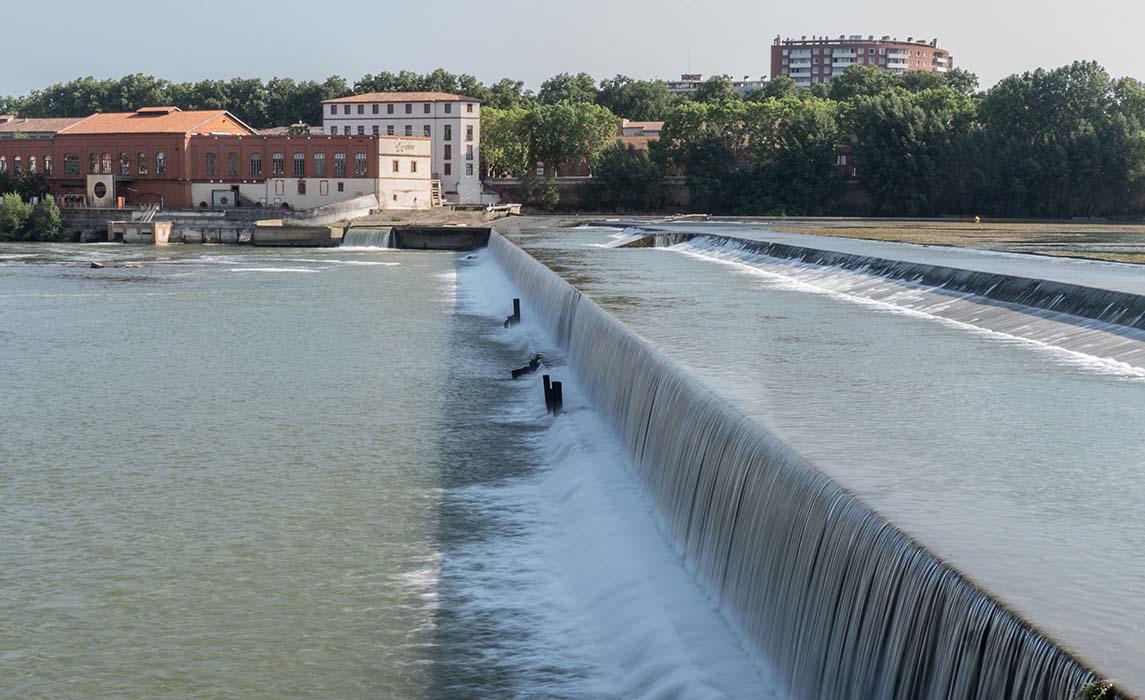
Hydro-electricity
Toulouse has 3 hydroelectric power stations which are mainly used for urban lighting; one on the Ile du Ramier, a second at Bazacle and a third at La Cavaletade which alone produces 7 MWh/year (i.e. the consumption of 1,000 homes).
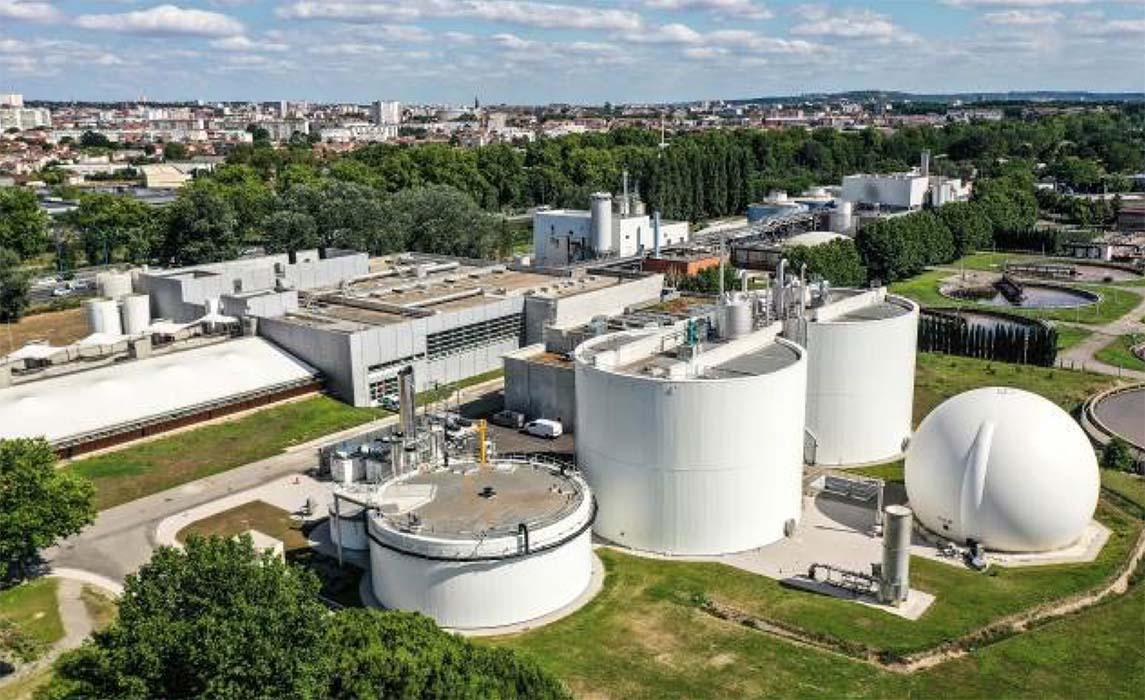
The Le Ginestous methanisation plant
Slurry from the wastewater treatment process is recovered to produce biogas (bio methane = green methane) which is also fed into the general energy grid.
- 28 million Euros of investment
- 1Nm3 of bio methane = 10,7 KWh
- 10,000 tonnes of CO2/year prevented (4,700 cars per month or the total CO2 absorption capacity of 300,000 trees)
- It is the largest urban factory in France
Pierre-Jean CHANDÈS
Business Development Manager Green Energies, GreenTech & CleanTech
pj.chandes@toulouseatout.com
Mob: +33 6 03 82 88 21
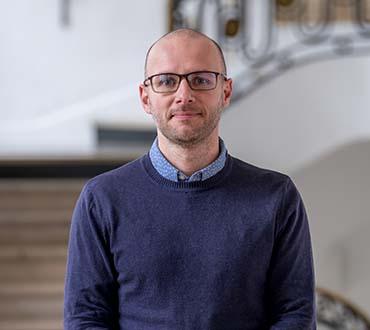
Competitiveness Clusters and hubs within the sector
The DERBI hub: created in 2005, the DERBI competitiveness cluster brings together companies, laboratories, universities, training centres, professional federations, financial organisations and local authorities involved in the growth of the renewable energy sector.
- 350 members
- 336 projects listed since 2006, including 197 that have already received funding
CEMATER: a cluster bringing together professionals in the renewable energy and sustainable construction sector in the Occitanie region. (>90 members)
Aqua Valley: federates a network of 230 members (large companies, small and medium-sized businesses, research and training organisations, associations) mainly located in the Occitanie / Pyrénées-Méditerranée and Provence-Alpes-Côte-d'Azur regions.
Their expertise and know-how cover all aspects of the water cycle.
Focus on hydrogen
Project Hyport (Q4 2022)
Created by ENGIE Solutions (51%) and the Occitanie Regional Climate and Energy Agency (49 %), in late 2022 Hyport will inaugurate its first green hydrogen production plant (430 kg/day) that will supply 180 light vehicles and 7 busses at the Toulouse Blagnac Airport site. Toulouse’s airport is the first airport in Europe to boast a facility for the renewable supply of hydrogen to power shuttle busses that transport passengers on site.
Facilities:
1 plant near the runways at 350 bars
1 plant near the city at 350 & 700 bars
The Francazal Hydrogen Technocampus (2024)
15,000m² are earmarked to house Europe's largest research, testing and technological innovation centre dedicated to green hydrogen. It will house so-called « low-power » and « high-power » units dedicated for use by universities, Start-ups and industries.
Total investment (initial funding and equipment): €40M
The objective is to become the largest European centre for research, testing and technological innovation dedicated to the production of hydrogen from water electrolysis.
The multi-fuel station project on the Langlade site (Tisséo)
By 2023 Tisséo Collectivités should acquire 6 to 8 hydrogen-powered buses which will be assigned to the Langlade depot for use on a regular route. Tisséo's fleet consists of 561 buses, 60% of which are hybrid, electric or run on NGV.
